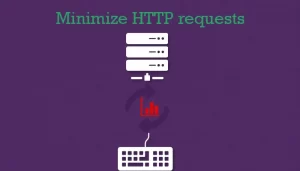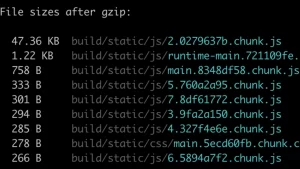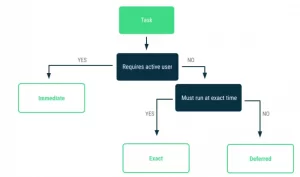It is hard to keep up in the digital world, where mobile app development is evolving at an unstoppable pace. The number of mobile users is increasing on a daily basis, and they demand the best user experience. The consumers of mobile applications look for two things when interacting with a mobile application: speed and responsiveness. Understanding the technological breakthroughs that occur every now and then, they expect apps to load quickly, run smoothly, and offer a seamless experience. If a mobile app performance is below par, it cause frustration among users. This can lead to decreased user engagement and lower retention rates.
Interestingly, with the rise of mobile commerce, mobile app performance issues can directly affect a company’s bottom line. Therefore, mobile app developers must prioritize performance optimization in order to provide a positive user experience and stay competitive in the mobile industry.
Mobile apps are expected to generate approximately $935 in revenue in 2023. To fetch some of that revenue, here are ten mobile app development tips to help you tune up your mobile application for peak performance.
Optimize videos & images
Whenever someone launches a mobile application, they expect a smooth user experience. But if they are greeted with unnecessary HTTP requests from the application before even getting to the home page, the app is highly likely to get uninstalled. Too many HTTP requests directly lead to longer load times, as they block the users from getting further into the app. One of the best ways to decrease the number of requests from your application is through data management. In short, the more controlled and optimized data you have stored in your app, the fewer requests your users will receive upon launching the app. This data could be anything ranging from high-resolution images, videos, or any other type of heavy-duty files.
Implement lazy loading
If you have a mobile application that is filled with vivid animations and images but needs some effort on the part of users to access them, then lazy loading can help you improve mobile app performance. Lazy loading offers the convenience of loading the images on the mobile application only when the user intends to view them. When the user is scrolling through the interface, the data of the images that are yet to be seen are held back so that there is no disruption in the user experience. This technique is often used to keep the HTTP requests in check, another hindrance that is discussed in the previous pointer.
Employ the latest APIs
Mobile application development is incomplete without APIs. They define the way mobile app exchange data with other apps or services. In other words, they play a significant role in mobile app performance. Using APIs lessens the need for coding the entire app to make all essential features work correctly. Another perk of APIs is the convenience of signing into the mobile application through social media accounts such as Google and Facebook. This saves the time of users, which is generally spent on filling out long sign-up forms.
Reduce code bloat
Code bloat is any code that is unnecessarily integrated into a mobile application. These codes are often long and slow, resulting in the wastage of resources. For better mobile app performance, code bloats can be replaced with more efficient codes that allow the smooth functioning of any mobile application. If you want to offer your users a seamless experience, try to reduce code bloat and simplify algorithms. If needed, get rid of a few unnecessary features that are not part of your marketing goals.
Implement code splitting
Breaking down codes into small chunks can significantly improve your mobile app performance. Suppose you have developed a mobile application with limited functions. Over time, with various upgrades, it evolves into a full-fledged application integrated with the most advanced features. Now more features mean excessive coding, and excessive coding means higher chances of app lag. Without compromising the quality of the user experience, you can use the code-splitting technique to split the app into independent pieces, which can come into action whenever needed. This will reduce the application’s load times and memory usage.
Offer offline version
When a mobile application runs offline, it neither consumes much memory nor takes long to load. After all, it is disconnected from the internet and doesn’t invite any unnecessary hindrances in the user experience. Often times it happens that users do not have access to the internet, but they need to use the application. In such cases, they are always grateful for an offline option. If your mobile app doesn’t offer an offline option, chances are you might not be able to retain your users for long. In app development iOS and Android, no matter what kind of app you develop, always ensure an offline version is available for users.
Make use of push notifications
Integrating push notifications into your mobile app is a great way to save users’ time and improve app performance. These notifications inform the users beforehand about any forthcoming updates and changes to the app or any promotional event without having them open the app and see it. This feature can come in handy when the mobile application in question already takes significant time to load for even minor tasks. Although these kinds of mobile apps are typically considered undesirable, the reputation of the brand it represents can help it to sustain its usage.
Implement background processing
Android mobile applications utilize the main thread, also known as the UI thread, to handle updates and operations. If your app involves certain levels of functions based on memory consumption, it is best to set them to run in the background and not on the main UI thread. If a task that consumes significant memory is run on the main thread, it can lead to app freeze and unresponsiveness. Therefore, always ask your app development team to implement background processing for such functions.
Regularly test and optimize the app
Last but not least suggestion is to regularly test and optimize the app for bugs. In order to sustain the life of your mobile application, you must check it for any problems every once in a while. Thoroughly review your users’ complaints and take action on their queries and issues. If a mobile app is left dormant on the App Store or Google Play Store for a long time, it will likely get removed if the persisting problems are not addressed timely.
To Sum Up
With the ever-changing trends in mobile app development, keeping up can be a challenge. Mobile app performance is one of the most crucial aspects of app development. Finding a reliable mobile app development company that could craft an app that offers top performance is a trial of its own. Connect with Celect Studios, an up-and-coming mobile development company equipped to handle all aspects involved in mobile application development. From ideation to final deployment, it ensures no loopholes in the development process and promises a high-performing mobile application for your business.








